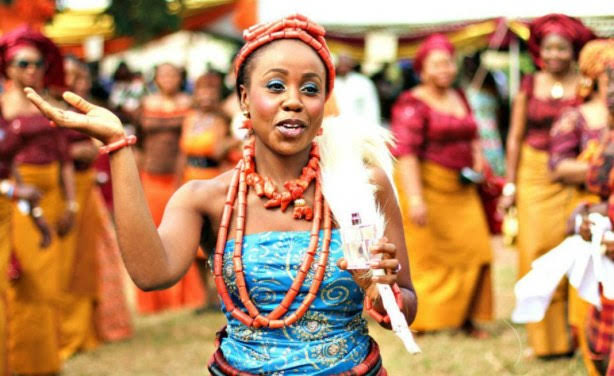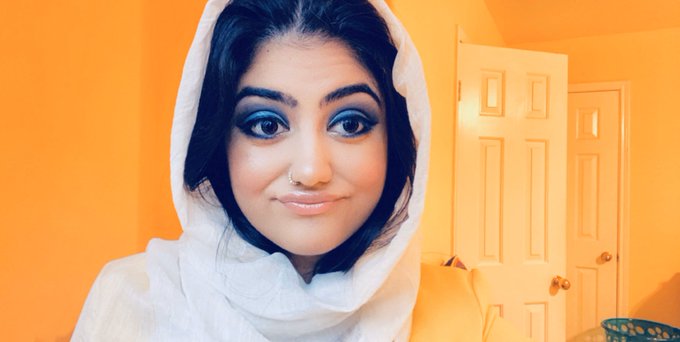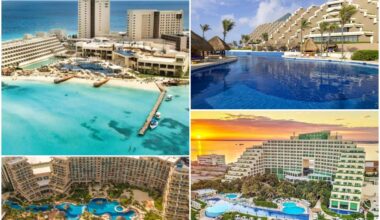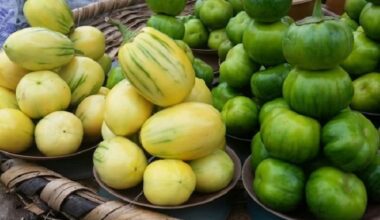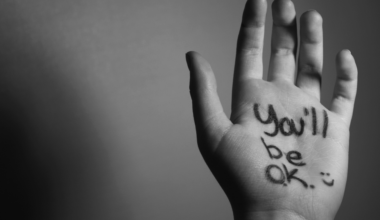Nigeria, a country in Western Africa, is renowned for its rich and varied linguistic landscape. With a staggering 520 languages reportedly spoken throughout the country, it offers a fascinating insight into the cultural and ethnic diversity of its population.
Understanding Nigeria’s Linguistic Landscape
According to Ethnologue – a comprehensive reference work cataloging all of the world’s known living languages – Nigeria is home to a remarkable 520 languages. This figure, however, is subject to some debate, primarily due to the intricacies involved in distinguishing between dialects and languages.
Dialects vs. Languages in Nigeria
The terms “language” and “dialect” often stir up confusion. Typically, languages are considered to be prestigious, official, and written, whereas dialects are usually spoken, unofficial, and often looked down upon.
Linguists define dialects and languages based on mutual intelligibility. If two related forms of speech are close enough for speakers to converse and understand each other, they are considered dialects of a single language. Conversely, if comprehension is challenging or impossible, they are recognized as distinct languages.
However, this classification isn’t always straightforward. Social and political views also play a significant role. A common saying among linguists is, “A language is a dialect with an army and a navy.” This suggests that power dynamics can also influence the status of a language versus a dialect.
The Languages of Nigeria
To grasp the complexity of Nigeria’s linguistic diversity, let’s explore some of the languages spoken there. Check below:
Abanyom
Abon
Abua
Acipa, Eastern
Acipa, Western
Aduge
Afade
Agatu
Agoi
Agwagwune
Ahan
Ajawa
Ake
Akita
Akpa
Akpes
Akum
Alago
Alege
Alumu-Tesu
Ambo
Amo
Anaang
Anca
Angas
Arabic, Shuwa
Arigidi
Ashe
Asu
Aten
Atsam
Auyokawa
Awak
Ayere
Ayu
Baan
Baatonun
Baangi
Bacama
Bada
Bade
Bakpinka
Bali
Bangwinji
Basa
Basa-Gumna
Basa-Gurmana
Basa-Kontagora
Bata
Batu
Bauchi
Beele
Begbere-Ejar
Bekwarra
Bena
Berom
Bete
Bete-Bendi
Bile
Bina
Biseni
Bitare
Boga
Boghom
Boko
Bokobaru
Bokyi
Bole
Bo-Rukul
Bukwen
Bumaji
Burak
Bura-Pabir
Bure
Buru
Busa
Cara
Che
Cibak
Cinda-Regi-Tiyal
Ciwogai
Cori
Daba
Dadiya
Dass
Defaka
Degema
Dendi
Deno
Dera
Dghwede
Dibo
Dijim-Bwilim
Diri
Doka
Doko-Uyanga
Dong
Dulbu
Dungu
Duwai
Dzodinka
Ebira
Ebughu
Edo
Efai
Efik
Efutop
Eggon
Ehueun
Ejagham
Ekajuk
Eki
Ekit
Ekpeye
Eleme
Eloyi
Emai-Iuleha-Ora
Engenni
Enwang
Epie
Eruwa
Esan
Etebi
Etkywan
Etsako-Yekhee
Etulo
Evant
Fali
Fam
Firan
Fulfulde
Fum
Fungwa
Fyem
Fyer
Gaa
Ga’anda
Gade
Galambu
Gamo-Ningi
Gana
Gbagyi
Gbari
Gbaya, Northwest
Gbiri-Niragu
Geji
Gengle
Gera
Geruma
Gevoko
Ghotuo
Giiwo
Glavda
Goemai
Gokana
Gude
Gudu
Guduf
Gun-Gbe
Gupa-Abawa
Gurmana
Guruntum-Mbaaru
Gwa
Gwamhi-Wuri
Gwandara
Gyem
Ham
Hasha
Hausa
Holma
Hone
Horom
Huba
Hungworo
Hun-Saare
Hwana
Ibani
Ibibio
Ibino
Ibilo
Ibuoro
Iceve-Maci
Idere
Idoma
Idon
Idun
Igala
Igbo
Igede
Iguta
Ijo, Southeast
Ika
Iko
Ikpeshi
Iku-Gora-Ankwa
Ikulu
Ikwere
Ilue
Irigwe
Isekiri
Isoko
Ito
Itu Mbon Uzo
Ivbie North-Okpela-Arhe
Iyayu
Iyive
Izere
Izi-Ezaa-Ikwo-Mgbo
Izon
Izora
Janji
Jara
Jarawa
Jere
Jibe
Jibu
Jidda-Abu
Jilbe
Jimi
Jiru
Jju
Jorto
Ju
Jukun Of Takum
Kaan
Kadara
Kag-Fer-Jiir-Koor-Ror-Us-Zuksun
Kagoma
Kaivi
Kakanda
Kalabari
Kam
Kamantan
Kami
Kamo
Kamwe
Kaningkon-Nindem
Kanufi
Kanuri, Central
Kanuri, Manga
Kapya
Karekare
Karfa
Kariya
Khana
Kholok
Kinuku
Kiong
Kir-Balar
Kirike
Koenoem
Kofa
Kofyar
Kohumono
Koma
Kona
Kono
Koro Ija
Koro Zuba
Korop
Kpan
Kpasham
Kpati
Kubi
Kudu-Camo
Kugama
Kugbo
Kukele
Kulere
Kulung
Kumba
Kupa
Kurama
Kushi
Kutep
Kutto
Kuturmi
Kwa
Kwak
Kwaami
Kyak
Kyenga
Labir
Laka
Lala-Roba
Lamang
Lamja-Dengsa-Tola
Lamnso
Laru
Leelau
Legbo
Lela
Lemoro
Limbum
Lokaa
Longuda
Loo
Lopa
Lubila
Lufu
Luri
Maaka
Mada
Mafa
Maghdi
Mak
Mala
Malgwa-Wandala
Mama
Mambila, Nigeria
Mangas
Marghi Central
Marghi South
Mashi
Mawa
Mbe
Mbembe, Cross River
Mbembe, Tigon
Mboi
Mbongno
Mbula-Bwazza
Mburku
Mijili
Mingang Doso
Mini
Miship
Miya
Mom Jango
Montol
Moo
Mpade
Mumuye
Mundat
Mvanip
Mwaghavul
Nandu-Tari
Nde-Nsele-Nta
Ndoe
Ndola
Ndunda
Ngamo
Nggwahyi
Ngizim
Ngwaba
Ningye
Ninzam
Nkari
Nkem-Nkum
Nkoroo
Nkukoli
Nnam
Numana-Nunku-Gwantu-Numbu
Nungu
Nupe-Nupe Tako
Nyam
Nyong
Nzanyi
Obanliku
Obolo
Obulom
Odual
Odut
Ogbah
Ogbia
Ogbogolo
Ogbronuagum
Okobo
Oko-Eni-Osayen
Okpamheri
Okpe
Okpe-Idesa-Akuku
Oloma
Olulumo-Ikom
Oring
Oron
Oruma
Ososo
Otank
Pa’a
Pe
Pero
Pidgin, Nigerian
Piti
Piya-Kwonci
Polci
Pongu
Putai
Pyapun
Reshe
Ron
Ruma
Samba Daka
Samba Leko
Sanga
Sasaru-Enwan-Igwe
Saya
Sha
Shall-Zwall
Shamang
Shama-Sambuga
Shanga
Shau
Sheni
Shiki
Shoo-Minda-Nye
Shuwa-Zamani
Siri
Somyev
Sorko
Sukur
Sur
Surubu
Tal
Tala
Tambas
Tangale
Tarok
Tedaga
Teme
Tera
Teshenawa
Tha
Tita
Tiv
Toro
Tso
Tula
Tumi
Tyap
Ubaghara
Ubang
Uda
Uhami
Ujijili
Ukaan
Ukpe-Bayobiri
Ukpet-Ehom
Ukue
Ukwa
Ukwuani-Aboh-Ndoni
Ulukwumi
Umon
Uneme
Urhobo
Usaghade
Uvbie
Uzekwe
Vaghat-Ya-Bijim-Legeri
Vemgo-Mabas
Viti
Vono
Vute
Waja
Waka
Wannu
Wapan
Waphan
Warji
Wase
Wom
Xedi
Yace
Yala
Yamba
Yangkam
Yendang
Yeskwa
Yiwom
Yoruba
Yukuben
Zangwal
Zari
Zarma
Zeem
Zhire
Ziriya
Ziziliveken
Zumbun
The Role of Dialects in Nigeria’s Linguistic Diversity
While the label ‘dialect’ is often viewed as a downgrade from ‘language’, dialects are an integral part of Nigeria’s linguistic diversity. They represent regional or social variations of a language.
For instance, consider the Yoruba language. It has various dialects, such as Main Yoruba and Ondo, which may exhibit significant differences in pronunciation, vocabulary, and grammar. The similarities and differences between these dialects and their parent language can be as profound as those between distinct languages, such as Spanish and Portuguese.
The Importance of Linguistic Diversity in Nigeria
This linguistic diversity is not just a fact of interest. It is a testament to Nigeria’s rich history and cultural diversity. Each language represents a unique culture, history, and way of life. However, it also poses challenges for national cohesion and communication. It underscores the importance of having a common language for communication, such as English, the official language of Nigeria.
Conclusion
In conclusion, Nigeria’s linguistic landscape is as diverse as its cultural and ethnic makeup. With over 500 languages in Nigeria, it stands as a testament to the country’s rich heritage and diversity. However, it also underscores the importance of mutual understanding and respect for cultural differences in fostering national unity.
